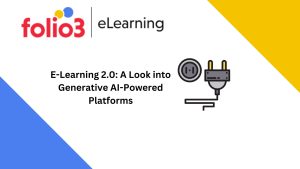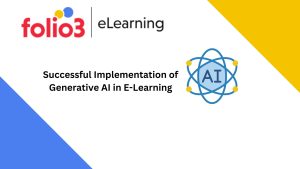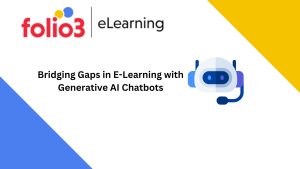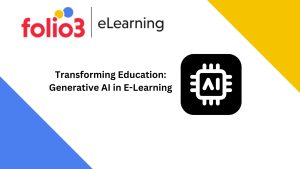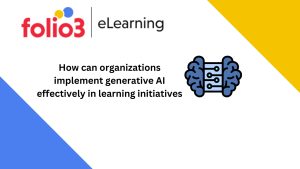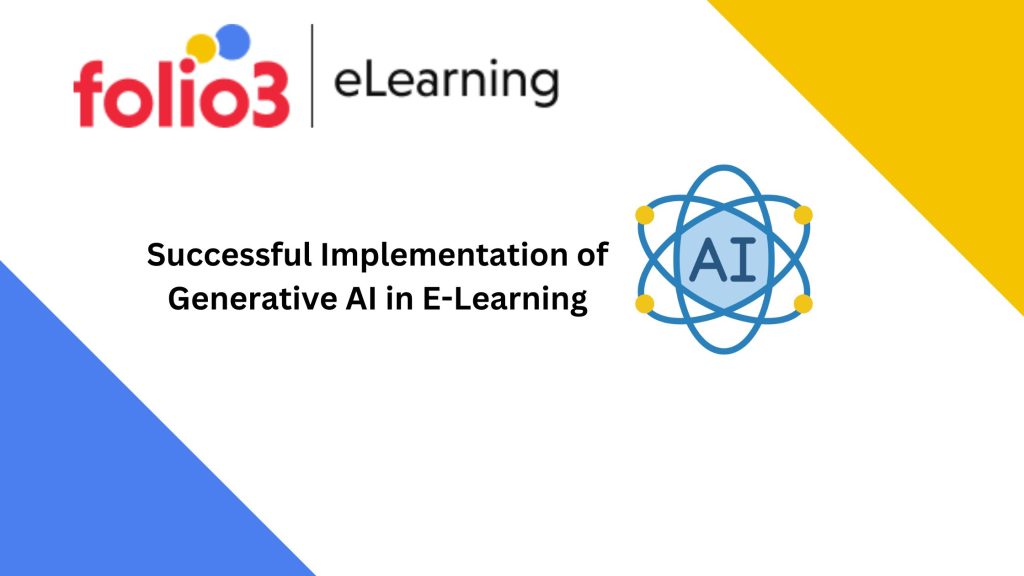
Executive Summary:
The production, and personalization of content have all been improved by generative AI, completely changing the face of e-learning. In this blog, we examine case studies demonstrating the Successful Implementation of Generative AI in E-Learning and its impact on educational outcomes.
Introduction:
The field of education has made incredible strides thanks to the digital age, which has turned conventional classrooms into vibrant online learning spaces. Generative AI in e-learning platforms is one of the most innovative developments in this field.
This ground-breaking technology has brought about a new era of individualized and interesting education and has changed the way that educational content is produced and delivered.
Machine learning algorithms are used by generative AI to create text, photos, videos, and other types of multimedia material.
It is a fantastic fit for the e-learning industry since it can develop customized learning materials, adapt to specific learner demands, and promote dynamic interactions.

Using Generative AI to Customize Learning Paths
Powerful algorithms and machine learning models enable generative AI, which can examine a vast amount of data on specific students.
This data includes not only how students did on tests and assignments but also how they interacted with the online learning environment, such as how much time they spent on various subjects and what resources they used.
This comprehensive understanding of each learner enables Generative AI to comprehend their strengths and limitations, learning preferences, and styles of instruction.
Generative AI in e-learning evaluates a student’s starting knowledge and skill level as they embark on their e-learning journey. It might give them a diagnostic test or evaluate how well they did in the beginning lessons.
Generative AI in e-learning suggests a custom order of lessons, tasks, and resources based on the initial evaluation and future interactions.
The AI may skip over a pupil to more difficult content if they perform exceptionally well in a particular subject. On the other hand, if a student has difficulties, it might provide extra assistance in the form of supplemental materials or specific activities.
Successful Implementation – Case Studies
The Adaptive Learning Platform of Khan Academy
Khan Academy is a well-known online learning resource that offers free lesson videos and exercises in a variety of disciplines. Generative AI was used by Khan Academy to tailor the educational experience to the needs of each individual learner.
Case Study: The Generative AI system at Khan Academy uses diagnostic tests to determine a student’s starting level of competency in a subject.
The AI continuously evaluates the student’s performance data as they go and suggests particular workouts and classes. If a student excels in a specific subject, the AI directs them toward more difficult material, making sure they are adequately challenged.
On the other hand, if a student struggles, the AI suggests more practice in the pertinent subjects. This adaptable strategy has enhanced learning results and raised student engagement.
The Role of Chatbots in E-Learning
Students and learners from all over the world seek education at various times, frequently spanning numerous time zones, in the fast-paced world of e-learning.
When it comes to giving timely and efficient help, this variety in timetables might present serious difficulties. Here, generative AI chatbots can be used to fulfill learners’ demands around the clock in a novel way.
With generative AI in e-learning chatbot computer programs that mimic human conversation become effective tools for offering round-the-clock support in the e-learning environment.
Successful Implementation – Case Studies
One of the top online learning platforms in the world, Coursera, has been at the forefront of utilizing technology to raise educational standards.
The learning assistant bot, a potent tool that has revolutionized how students interact with course information and support, is one of its noteworthy breakthroughs.
Case Study: A number of Coursera’s courses include the Learning Assistant Bot. It offers immediate solutions to frequent queries, helps with technological problems, and even gives study advice based on how well a student is doing.
Because of the bot, learners’ e-learning experiences are easier and more effective because they always have access to support. The learning assistant bot is made to give students quick answers to their queries and inquiries.
The bot is readily available to support students with their requirements, whether they require clarification on a concept, assistance with a technical problem, or direction on assignments.
Conclusion:
The successful implementation of generative AI in e-learning provides answers to some of its most urgent problems. The case studies shown here show how it may tailor learning curricula, economize on feedback procedures, produce interesting content, and offer round-the-clock support.
The use of Generative AI in e-learning has the prospect of improving accessibility, engagement, and effectiveness for students all across the world as technology develops.
The future of online education is looking better thanks to its successful application in these case studies. Both educators and students can start a journey of e-learning innovation and continual improvement by utilizing the power of generative AI.

